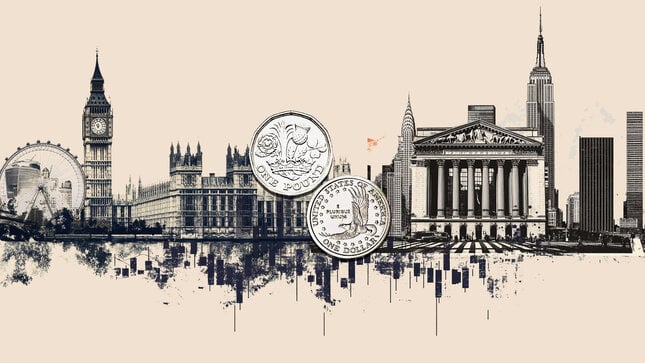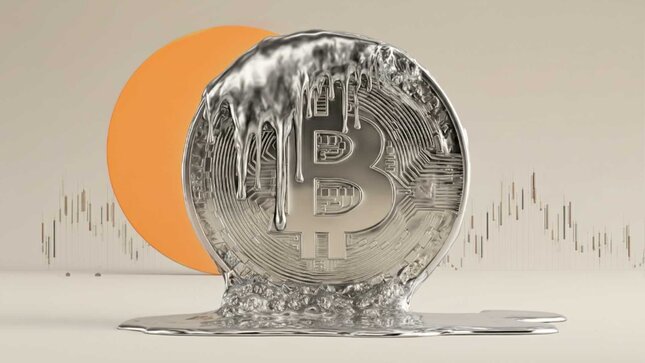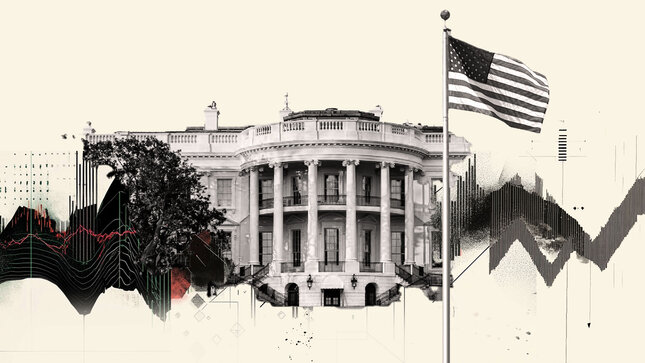As the gatekeepers of a country’s fiscal policies, central banks play an essential role in stabilising their local economy. The list of central bank responsibilities runs long, but in a nutshell, their primary duties include balancing monetary supply and demand;managing credit levels;supervising the growth of financial institutions and controlling interest rates. Proper management of these functions fosters economic growth and creates stability in the country.
Fulfilling these obligations is the type of balancing act that requires extra care, and a firm grasp on the rudiments that make up a healthy economy. Sometimes, however, a cautious fiscal mandate clashes with the reigning government’s agenda; if the monetary policy is set by branches of the government, the economy’s stability could be at risk.
Thanks to checks and balances in democracies, devious leaders rarely get away with attempts to undermine sensible economic policies as a way to appeal to voters, or promote a personal agenda. In certain third world countries however, a country’s fiscal policy is often sacrificed by leaders who have a myopic way of thinking.
Jameel Ahmad, VP Corporate Development and Market Research at FXTM, says: “there are many examples of economies damaged by meddling leaders and their political aspirations, which go against the economic status quo. An incumbent may put pressure on their central bank to reduce interest rates during election time, because this may increase disposable income, boost economic growth and decrease unemployment – scenarios that would help the incumbent get re-elected.
However, these are short-lived gains because the haphazard act of loosening a country’s monetary policy can cause the economy to grow faster and increase inflation, even to a point where it spirals out of control. Despite the negativity associated with politicians trying to exert undue influence on monetary policy, it is a common occurrence”.
Raghuram Rajan, the governor of the Reserve Bank of India, was recently squeezed out of his job by politicians belonging to the ruling Bharatiya Janata Party (BJP) party. In July 2017, the African National Congress, South Africa’s ruling party, proposed that the South African Reserve Bank (SARB) be nationalised. As soon as the news hit, the Rand predictably fell, by around 1.5%, to R13.45 against the USD. While Finance Minister Malusi Gigaba keeps saying all the right things aimed at protecting the independence of the Reserve Bank, a sinister undertone may be implied. Nationalisation will, by its very nature, give the government more influence over policies.
Politicians like the money supply to increase before elections, because a reduction in interest rates stimulates economic activity; consumers increase borrowing and consumption. Businesses borrow more to invest in production, and employment figures start to look more attractive. However, this kind of economic stimulus precipitates inflation. Eventually, the economy goes into reverse, and there is a reduction in the money supply, while interest rates increase.
The mandate of a central bank is materially linked to a country’s economic progress but they do not always rise to the challenge. Perhaps the most spectacular example is Venezuela’s central bank, which can only be described as a catastrophe. The weakening economy of Venezuela under the regime of President Nicolas Maduro, is forecast by the International Monetary Fund (IMF) to reach a consumer-price inflation rate of a massive 1,640% by the end of 2017. This has been, in part, precipitated by the disastrous management of the central bank by Nelson Merentes, who was recently asked to step down as governor. The impact on the economy includes shortages of food staples such as milk, flour, and it has also resulted in medicinal shortages, electricity cuts, rising unemployment and a noticeable increase in crime.
In recent years, there has been an increasing trend to give monetary policy decisions to independent central banks. Countries that do this tend to fare better, according to research. In addition to making more measured economic decisions, a country with an independent monetary policy garners more credibility, which in turn earns more confidence from the international community. In and of itself, this helps maintain the favour of citizens, investors and ratings agencies.
“Central bank independence is a widely accepted practice today. Perhaps the bigger issue is whether they should wait for inflation to take hold before they act, or act when they see the first signs. Interest rates are good indicators of the health of an economy. Ideally, they should be allowed to rise and fall naturally as the economy expands or contracts, and they should not be influenced by political agendas” says Ahmad. As independent as they are, central banks will always be accountable to their masters, walking the fine line of holding onto independence while trying not to invoke the wrath of the institution that can pull the rug – the government.
Disclaimer:This written/visual material is comprised of personal opinions and ideas. The content should not be construed as containing any type of investment advice and/or a solicitation for any transactions. It does not imply an obligation to purchase investment services, nor does it guarantee or predict future performance. FXTM, its affiliates, agents, directors, officers or employees do not guarantee the accuracy, validity, timeliness or completeness of any information or data made available and assume no liability for any loss arising from any investment based on the same.
Risk Warning: CFDs are complex instruments and come with a high risk of losing money rapidly due to leverage. 90% of retail investor accounts lose money when trading CFDs with this provider. You should consider whether you understand how CFDs work and whether you can afford to take the high risk of losing your money.
Editors’ Picks

EUR/USD: Yes, the US economy is resilient – No, that won’t save the US Dollar Premium
Some impressive US data should have resulted in a much stronger USD. Well, it didn’t happen. The EUR/USD pair closed a third consecutive week little changed, a handful of pips above the 1.1800 mark.

Gold: Metals remain vulnerable to broad market mood Premium
Gold (XAU/USD) started the week on a bullish note and climbed above $5,000 before declining sharply and erasing its weekly gains on Thursday, only to recover heading into the weekend.

GBP/USD: Pound Sterling remains below 1.3700 ahead of UK inflation test Premium
The Pound Sterling (GBP) failed to resist at higher levels against the US Dollar (USD), but buyers held their ground amid a US data-busy blockbuster week.

Bitcoin: BTC bears aren’t done yet
Bitcoin (BTC) price slips below $67,000 at the time of writing on Friday, remaining under pressure and extending losses of nearly 5% so far this week.

US Dollar: Big in Japan Premium
The US Dollar (USD) resumed its yearly downtrend this week, slipping back to two-week troughs just to bounce back a tad in the second half of the week.
RECOMMENDED LESSONS
Making money in forex is easy if you know how the bankers trade!
I’m often mystified in my educational forex articles why so many traders struggle to make consistent money out of forex trading. The answer has more to do with what they don’t know than what they do know. After working in investment banks for 20 years many of which were as a Chief trader its second knowledge how to extract cash out of the market.
5 Forex News Events You Need To Know
In the fast moving world of currency markets where huge moves can seemingly come from nowhere, it is extremely important for new traders to learn about the various economic indicators and forex news events and releases that shape the markets. Indeed, quickly getting a handle on which data to look out for, what it means, and how to trade it can see new traders quickly become far more profitable and sets up the road to long term success.
Top 10 Chart Patterns Every Trader Should Know
Chart patterns are one of the most effective trading tools for a trader. They are pure price-action, and form on the basis of underlying buying and selling pressure. Chart patterns have a proven track-record, and traders use them to identify continuation or reversal signals, to open positions and identify price targets.
7 Ways to Avoid Forex Scams
The forex industry is recently seeing more and more scams. Here are 7 ways to avoid losing your money in such scams: Forex scams are becoming frequent. Michael Greenberg reports on luxurious expenses, including a submarine bought from the money taken from forex traders. Here’s another report of a forex fraud. So, how can we avoid falling in such forex scams?
What Are the 10 Fatal Mistakes Traders Make
Trading is exciting. Trading is hard. Trading is extremely hard. Some say that it takes more than 10,000 hours to master. Others believe that trading is the way to quick riches. They might be both wrong. What is important to know that no matter how experienced you are, mistakes will be part of the trading process.
The challenge: Timing the market and trader psychology
Successful trading often comes down to timing – entering and exiting trades at the right moments. Yet timing the market is notoriously difficult, largely because human psychology can derail even the best plans. Two powerful emotions in particular – fear and greed – tend to drive trading decisions off course.


